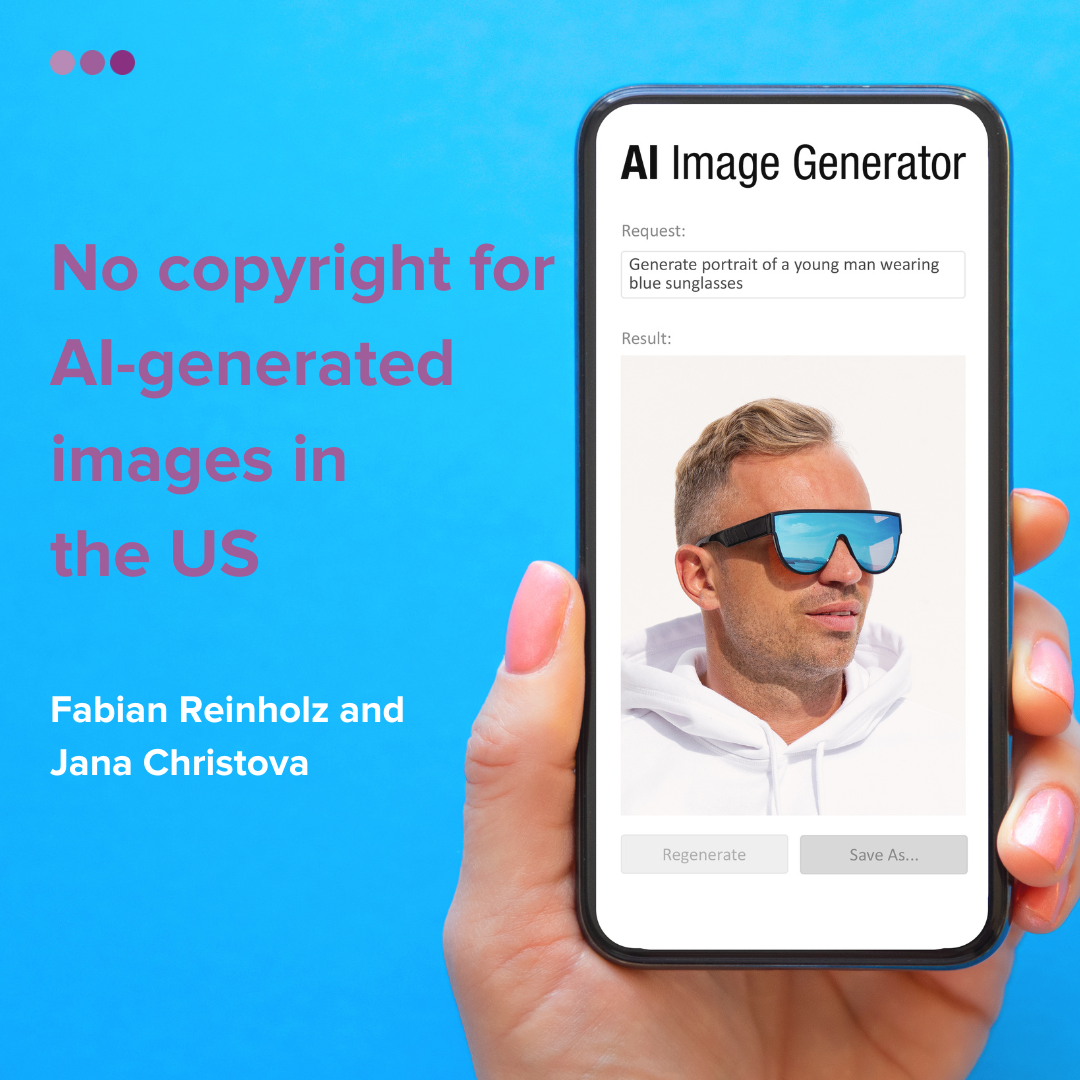US: No copyright for AI-generated images
The US Copyright Office recently ruled again that artworks created by artificial intelligence are not protected by copyright, upholding its practice of not registering AI-generated art as a copyright work.

lazy-loading-responsive-images domain was triggered too early. This is usually an indicator for some code in the plugin or theme running too early. Translations should be loaded at the init action or later. Please see Debugging in WordPress for more information. (This message was added in version 6.7.0.) in /www/hartingrechtsanwalte_456/public/releases/20250521080739/web/wp/wp-includes/functions.php on line 6114Artificial intelligence will not replace us humans, but it is influencing the development of our clients’ products and services in addition to the way we work. AI (“Artificial Intelligence”) is not at all new – but its development and practical use has experienced exponential growth. The rapid rise and now almost daily developments in the field of AI raise numerous exciting and, in some cases, highly complex legal questions. The market penetration of generative AI models, such as the large language model ChatGPT, and the accompanying legal, social and political debates show that the current development is not just a trend, but a major economic disruption.
We advise companies that want to develop their own AI tools or implement existing AI tools in their own business model. In doing so, we place particular emphasis on effective consulting with the goal of identifying and minimizing potential risks. We are convinced that innovations can also be shaped within the framework of legal regulation and that the opportunities offered by AI can be harnessed.
Integrating AI systems into your company can present both technical and legal challenges. Whether it’s the integration of a helpful chatbot on your website or the complete integration of generative AI into your business processes – we are here to advise you. We help you clarify the legal framework and ensure that your company meets the legal requirements.
If you render services as an AI technology provider or want to use the services of AI providers as a company, the legally secure drafting of contracts is elementary. In addition to the clear definition of the scope of services, AI also raises particular questions about the scope of the granting of rights of use or licenses and liability. We draft, review or negotiate contracts relating to AI services for you and ensure that your interests are protected.
We support you in the legal analysis of data protection for the integration of AI systems in your company. In doing so, we examine which data protection constellations exist for the integration and use of AI systems (commissioned processing, joint controller or controller-to-controller) and create or review the necessary legal texts (e.g., commissioned processing contracts, joint controller agreements, etc.). In addition, we review, supplement and create data protection information and support you – if necessary – in conducting data protection impact assessments. You can also rely on our expertise in the legally compliant design of AI-supported profiling and advertising scoring.
If a company uses AI, for example to create content, it is externally liable for the AI-generated content in full. Therefore, processes should be established early on that address and minimize the risks of AI use. We support you in developing such processes and creating AI policies in your company. From ethical guidelines to concrete instructions for action – we ensure that your AI policies are legally compliant and adapted to the specific requirements of your company.
Anyone offering AI-based products and services, for example as AI Software-as-a-Service, in B2B or B2C, should set out their legal framework in T&Cs or Terms of Use and – where permitted – deviate from the statutory provisions. We support you in creating clear and understandable Terms and Conditions that minimize the legal risks for your company, take into account the applicable GTC (and, if applicable, consumer) law, and at the same time offer your customers fair conditions for the uses of your products and services.
There is currently no “AI law”. However, the European “AI Act”, is in the starting blocks and promises further compliance requirements and high fines for non-compliance with the legal requirements, for example in the case of lack of transparency. Compliance with EU AI legislation can be complex and challenging. We can advise you on how to comply with the relevant regulations with reasonable effort while realizing the full potential of AI.
The use of training data for AI systems can raise complex questions about data protection, copyright and competition law. We help you meet these legal requirements and find the right balance between efficient data management and legally compliant practice. In doing so, we naturally take into account both national and international law.
